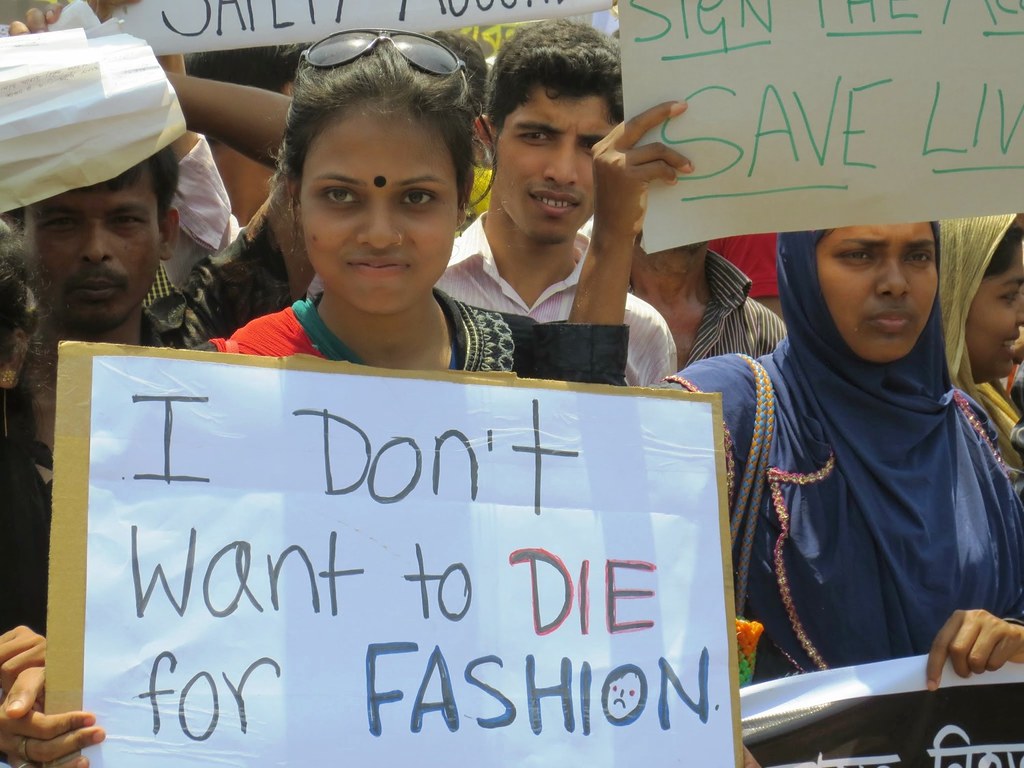The assumption that history is simply a natural stride to progress is an intellectually lazy and factually misguided one. Even today, as societies become more multiracial and diverse, challenges remain vast. The last few years has felt like a bleak blow to the assumption that the move towards greater multicultural harmony is guaranteed.
The world has been soaked in a wave of victories for those seeking to fan the flames of ethnic conflict, be it in India and the US or Hungary and Italy. Politicians on the left and the centre ground have largely been spectators to their own demise.
More recently, the murder of George Floyd and the reaction to his horrific killing has undressed and laid bare the social fissures that still powerfully characterise western societies. In the wake of the massive antiracism protests that the tragedy sparked, corporations have cashed in. This brand of woke capitalism achieves very little beyond the social media attention that is nothing more than a marketing goldmine for it. Companies that are celebrating antiracism are often the same ones criminally underpaying their staff; they are driving the economy of modern slavery and exploitative workshops often built upon the labor of brown and black women and children unable to assertively demand their rights. Take for example the garment industry in Bangladesh, which consists of severely underpaid and exploited female labour producing clothes for many global companies. Enterprises ranging from Adidas to GAP are on social media adopting the strategically correct tones on empowering women of colour to convince their customers that they are not participants in a system of prejudice, even if they have helped mould it through economic dominance. These are the same companies that rejected pleas by the Bangladeshi labour groups to improve factory safety after the tragic collapse of Dhaka garment factory that killed over a thousand workers.
Another example is Amazon, the borderless, transnational corporate entity that embodies the idea of global trade by delivering goods from all over the world to different countries. The company was very vocal on social media about the importance of black lives mattering. However, Amazon has been repeatedly exposed of severely unethical workplace conditions, particularly in its warehouses. The workers, who are more than twice as likely to be black than the general population, are overworked and deeply underpaid. Most of this workforce tends to be migrant labourers in somewhere like the UK, where the fear of deportation means a lot of low-paid migrant workers have to take what they’re given. In the context of Amazon expressing support for Black Lives Matter, this is particularly galling when a leaked email demonstrated how the company attempted to smear a former employee, a black union organiser in the warehouse. The belief amongst the executives was to make him the face of union organising and ridicule him, in hope of deflating future internal rumblings of discontent from ever materialising into anything substantial. But to those who believe that companies are a part of the national liberal conscience, Amazon curtailing the rights of workers, often low-paid immigrant labour, is an acceptable trade-off for the world’s richest man using his platform to denounce American police brutality.
Alongside social media posts, the perception seems to be that the best they can do is to hire consultants to provide sensitivity training, shifting the blame from the rich, overwhelmingly white managerial class to the workers. This is an example of the classic leftist thought that viewed bigotry as a sword of the rich to divide the working-class. There is another, perverse motive to do this – companies can use the provision of these trainings as an argument in court to defend themselves against discrimination lawsuites.
It is in this space that the role of trade unions can be a vital alternative and play an important part in rebuilding societies replete with a sense of mutual obligation, trust and transcendent solidarity lost due to the death of heavy industries and the unions.
In Britain, industrialisation was a strong part of the economy, particularly in the north through the provision of regular employment. Though not always, work can create a sense of pride both personally and in the places one lives in, and though the mines were hazardous, they plastered communities in a comforting sense of dignity and worth. But although by the time Margaret Thatcher arrived the manufacturing sector was already dwindling, she hastened its near destruction when she arrived. Entire communities were left in the upheaval at finding their livelihoods snapped away by policymakers in London. Unemployment shot up and with unions crushed, many of these former industrial towns and cities never recovered. Failure to revitalise these places through investment left high streets to die and communities left in a state of permanent rust. The new post-industrial economy favoured skills, only attainable through degrees. The Department for Education in 2017 found that young non-graduates had an unemployment rate three times as high as postgraduates.
It’s not a coincidence that as a result, research by the Royal Society for Arts, Manufacturing and Commerce found that post-industrial areas in England and Wales recorded far higher rates for Leave during the EU Referendum. Whereas the average was 53%, over half these areas had figures over 60%. This isn’t particularly surprising. Though some might be tempted to listen to pseudo-academic analysis that unpacks all this through a purely racial lens, a more compassionate and honest assessment would be that those entirely forgotten are more inclined to listen to political figures who angrily claim to speak for them.
The good news about that is that it can change, and the role of unions in bringing together natives and immigrant workers and creating a sense of solidarity is vital. Discrimination often flourishes within workplaces and the role of unions in fighting racism should not ever be underestimated. An example of this is the Grunwick dispute in 1976. The factory hired mostly Asian women from East Africa and subjected them to tyrannical control, such as requiring the workers to get permission from management to go to the toilets. Fed up of the low pay and terrible treatment, the workforce of Asian women walked out and became unionised. During this time, the trade union movement was not immune to widespread racist and sexist attitudes, often viewing immigrant and female labour as direct threats to the blue-collar white men they tended to represent. However, the Grunwick dispute was notable in gathering huge support across the movement, with thousands joining the Grunwick women to offer them support.
A study by Reading University found that unionised workers were less likely to vote for far-right or centre-right parties. The research also demonstrated that social democratic parties enjoyed far greater support than either Greens or the far-left parties and demonstrated a relationship between being within trade unions and supporting policies for wealth redistribution, that tend to disproportionately benefit ethnic minorities.
In America, research by the American Journal of Political Science generated an idea that interracial labour politics driven by trade unionism would reduce racial resentment and foster a sense of solidarity between groups. They found that union membership between 2010 and 2016 reduced the likelihood of racist prejudices amongst white workers, and that white unionised workers were more likely to support helping black Americans than non-unionised white workers. In a time when America has been scarred deeply by the latest high-profile police atrocity towards an innocent black man, this data feels both significant and reassuring. Similar evidence for sensitivity training doesn’t exist, and there are some indications that it can even backfire and increase the sentiments it seeks to reduce.
One can argue that this is the logical implication of trade union organising. You are less likely to see someone of different ethnicity competing with you in a zero-sum game if they were your brother in the workplace in the struggle for better rights and conditions. A solidarity is born in workplace organising that cannot be withered away through the difference of nationalities. The lack of trade union influence in the UK is partially why large companies such as Amazon are able to exploit immigrant workers, knowing that it is the voiceless Polish worker who is castigated for Britain’s ills rather than overseas companies setting up shop in destitute areas and trampling over the working-class. Not only can unions create a sense of reciprocal solidarity between different ethnic groups, it can also protect migrant workers from the excesses of capitalism.
This is a collective model of antiracism that has recently been abandoned in pursuit of a more individual focused strategy. But it is one that leftists should always return to when fighting racism. What better way is there to create solidarity between groups than empower them to work with each other for their own mutual benefit and a common good?
We are free online media cooperative owned democratically by the readers and the writers. Join us now and become a founding member. As a member you can vote for your favourite articles and we will distribute our funds accordingly.





